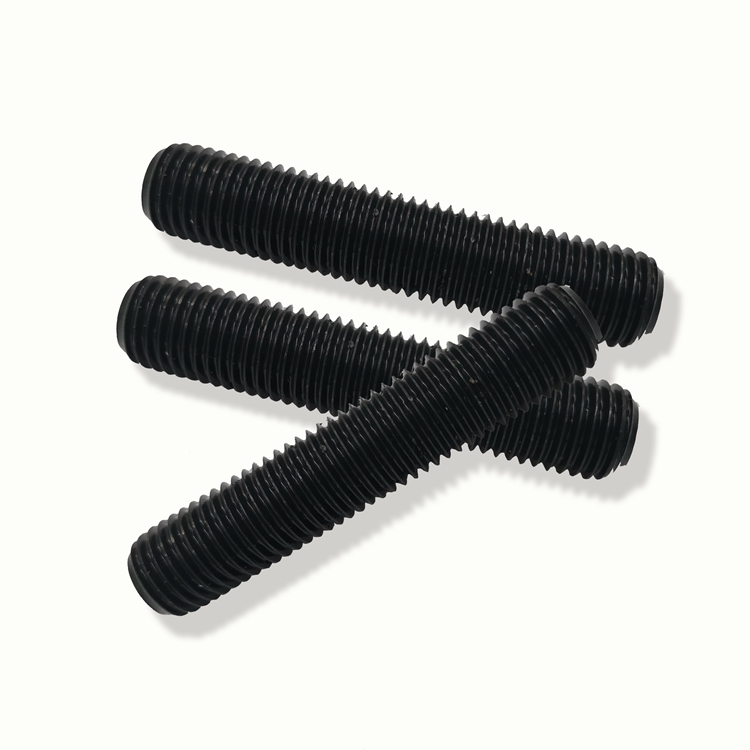Understanding the Functionality and Applications of Cone Washers in Various Industries
Nov . 07, 2024 08:53 Back to list
Understanding the Functionality and Applications of Cone Washers in Various Industries
Understanding Cone Washers A Versatile Component in Engineering
Cone washers, also known as conical washers or cone-shaped washers, are specialized fasteners commonly used in various engineering applications. Their unique shape and design enable them to fulfill specific roles in mechanical assemblies, providing advantages in terms of load distribution, stability, and vibration resistance. This article will delve into the purpose, design, manufacturing, and applications of cone washers, highlighting their importance in modern engineering.
What Are Cone Washers?
Cone washers are disc-like components characterized by a conical shape, which allows them to fit snugly against a surface while accommodating a bolt or screw. The geometry of these washers serves multiple functions they help distribute the load more evenly across the surface, reduce the risk of loosening due to vibration, and provide extra stability. They are typically used in conjunction with essential hardware components like bolts, screws, nuts, and other fasteners.
Design and Materials
The design of cone washers is crucial for their effectiveness. Their conical shape allows them to fit into the countersinks of various components, ensuring a secure fit. The angle and height of the cone can differ depending on the specific application and load-bearing requirements.
In terms of materials, cone washers can be made from a wide variety of substances, including metals like stainless steel, aluminum, and brass, as well as non-metallic materials like nylon or rubber. The choice of material generally depends on the environmental conditions and load requirements of the application. For instance, stainless steel is ideal for corrosion resistance in outdoor applications, while nylon may be preferred for lightweight assemblies.
Manufacturing Process
The manufacturing of cone washers typically involves techniques such as stamping, machining, or die-casting, depending on the required precision and volume. The process begins with selecting the appropriate material, followed by shaping it into a disc. Subsequently, the cone shape is formed through a series of controlled mechanical processes. Quality control is essential during production to ensure that each washer meets the exact specifications required for its intended application.
Applications of Cone Washers
Cone washers have a broad range of applications across various industries due to their versatility. Here are some common applications
cone washers

1. Automotive Industry Cone washers are often used in automotive assemblies to secure components and prevent them from loosening over time due to vibrations caused by engine operations or driving conditions.
2. Aerospace In the aerospace sector, where weight and reliability are critical, cone washers are employed to stabilize components and maintain tight connections in aircraft structures.
3. Construction In construction, cone washers are used in conjunction with bolts to secure beams and other structural elements, enhancing stability and safety.
4. Electronics Cone washers are also found in electronic devices, where they support printed circuit boards (PCBs) by providing a stable base for screws and other fasteners.
5. Marine Applications Given their ability to withstand harsh environments, cone washers are used in marine applications to secure parts in boats and ships, where exposure to moisture and salt is prevalent.
Advantages of Cone Washers
One of the significant advantages of using cone washers is their ability to reduce the risk of loosening under dynamic loads. The conical design provides a larger surface area in contact with the fastener, which enhances load distribution and minimizes stress concentration. Additionally, their ability to easily conform to uneven surfaces makes them ideal for applications where precision is required.
Moreover, cone washers are relatively straightforward to install and can be reused in many situations, which can lead to cost savings in projects where assembly and disassembly are common.
Conclusion
In summary, cone washers are a small but vital component in many engineering applications, providing unique benefits that enhance the performance and reliability of mechanical assemblies. Their conical shape, diverse material options, and wide range of applications make them indispensable in industries such as automotive, aerospace, construction, electronics, and marine. As technology advances and engineering challenges continue to evolve, the role of cone washers is likely to expand, emphasizing their importance in contemporary design and manufacturing processes. Whether you are an engineer, a product designer, or a DIY enthusiast, understanding the function and advantages of cone washers is essential in achieving lasting and reliable assemblies.
Latest news
-
High-Quality Panel Stud Bolt Reliable Panel Stud Bolt Factory & Suppliers
NewsJul.08,2025
-
High-Precision Fine Thread Locknuts Manufacturer & Supplier Custom Solutions
NewsJul.08,2025
-
PH Imperial Stud Bolt – High Strength Fasteners from Leading Supplier & Factory
NewsJul.07,2025
-
High-Quality Allen Wrench Bolts Leading Factory, Company & Suppliers
NewsJul.07,2025
-
Wholesale Ball Stud Bolt - High Quality Supplier & Factory Price Reliable Wholesale Ball Stud Bolt Company
NewsJul.06,2025
-
High-Strength Alloy Bolts Manufacturer & Supplier Quality Alloy Fasteners Factory
NewsJul.06,2025
